Should I Talk to the NC Nursing Board Investigator Without a Lawyer?
This is one of the most common and most important questions nurses ask after receiving notice of a complaint from the North Carolina Board of Nursing (NCBON). As a lawyer firm who represents nurses before the Board, it’s important to cooperate but doing so with help is often paramount to protecting your license.

What is a NC Nursing Board Consent Order?
A settlement conference or proposed Consent Order can permanently affect your professional record, and understanding what’s at stake before you sign anything is critical.

Can a Nurse Practitioner Discharge a Patient After a Board Complaint?
Nurse Practitioners (NPs) frequently face complex questions when a complaint is filed with the North Carolina Board of Nursing (NCBON). If you're an NP dealing with a board complaint, knowing how and when you can discharge a patient is critical for safeguarding both your practice and your license.

What Is a Voluntary Surrender of a NC Professional License?
If you hold a professional license in North Carolina and you’re being contacted by a licensing board about discipline, you may hear the term “voluntary surrender of your license.” But what does that really mean? And why does it matter to you, your career, and your future licensure?

How North Carolina Treats Out-of-State Discipline for Doctors and Nurses
Healthcare professionals are among the most mobile licensed workers in the country. With the rise of telemedicine, travel nursing, and multi-state licensure compacts, many physicians and nurses today hold active licenses in several states. But that flexibility comes with risk: disciplinary action in one state can quickly lead to repercussions in another.

Can a North Carolina Nurse Use THC or Marijuana?
Recreational marijuana use has not been approved by the North Carolina General Assembly. As it currently stands, marijuana remains a Schedule I controlled substance under both North Carolina law and federal law. This means that even though marijuana and THC products are legal in some other states, they are still illegal to use, possess, or distribute in North Carolina.

Can You Sue a North Carolina Professional Licensing Board? Legal Options Explained
Clients often contact the firm even before a formal complaint arises, typically because one or more of North Carolina’s licensing boards or agencies has upset them, caused them harm, or treated them unfairly. The question most licensees ask is the same: Can I sue the Board?

False Documentation Complaints and Nursing License Defense Before the NC Board of Nursing
When a nurse is reported to the North Carolina Board of Nursing (NCBON) by an employer, the allegation often includes a claim of “false documentation.” If you’ve received a notice in the mail or by email informing you of a complaint against your license, you may have seen those exact words.

How a “Failure to Maintain Minimum Standards” Complaint Can Affect Your North Carolina Nursing License
When a North Carolina nurse receives a notice from the NC Board of Nursing alleging a “failure to maintain minimum standards,” it can be alarming and confusing. This phrase is one of the most vague and broad allegations the Board uses

Do You Have to Respond to the NC Board of Nursing When You Receive a Complaint?
Yes, you are required to respond to the North Carolina Board of Nursing (NCBON) when you receive a complaint. However, if you have a nursing license defense lawyer, your strategy may require nuance.

The Foundation of Administrative Law in North Carolina Board Cases
Administrative law in North Carolina can seem daunting at first. Every state licensing board has its own rules and procedures, and that variety can make the process feel like an impenetrable maze. But beneath procedural variety lie common legal structures and patterns that apply across virtually all boards. Understanding those shared mechanics gives both attorneys and professionals a roadmap for what to expect and how to strategize in disciplinary or regulatory cases.

North Carolina Medical Board Disciplinary Options: What Physicians Should Know
When a complaint is filed with the North Carolina Medical Board (NCMB), one of the first questions physicians ask is: “What can the Board actually do to me?”
The answer isn’t always straightforward. The NCMB has a range of options—some private, some public, some disciplinary, and some technically “non-disciplinary” but still visible to the world. Understanding these outcomes can help you take control of the process early and protect your license, reputation, and career.

Protecting Your License: Why Documentation Matters for North Carolina Mental Health Professionals
In the world of professional licensing boards, especially in North Carolina, the accuser’s version of events is often taken at face value—at least initially. Mental health professionals such as licensed clinical mental health counselors, social workers, and psychologists frequently practice one-on-one without a treatment team or outside witnesses. This can quickly turn a complaint into a “he said / she said” situation.

What Doctors Should Know About Telemedicine in North Carolina
Telemedicine lets physicians diagnose, treat, and prescribe from virtually anywhere. But while the patient may not be physically in your exam room, North Carolina law still cares deeply about where the patient is located during that encounter.

Why Medical Professionals in North Carolina Should Avoid Treating Themselves or Family Members
Writing prescriptions for yourself or a family member may seem convenient, but in North Carolina it can quickly lead to a licensing investigation. The North Carolina Medical Board has made its expectations clear in Position Statement 2.2.3: Self-Treatment and Treatment of Family Members.

